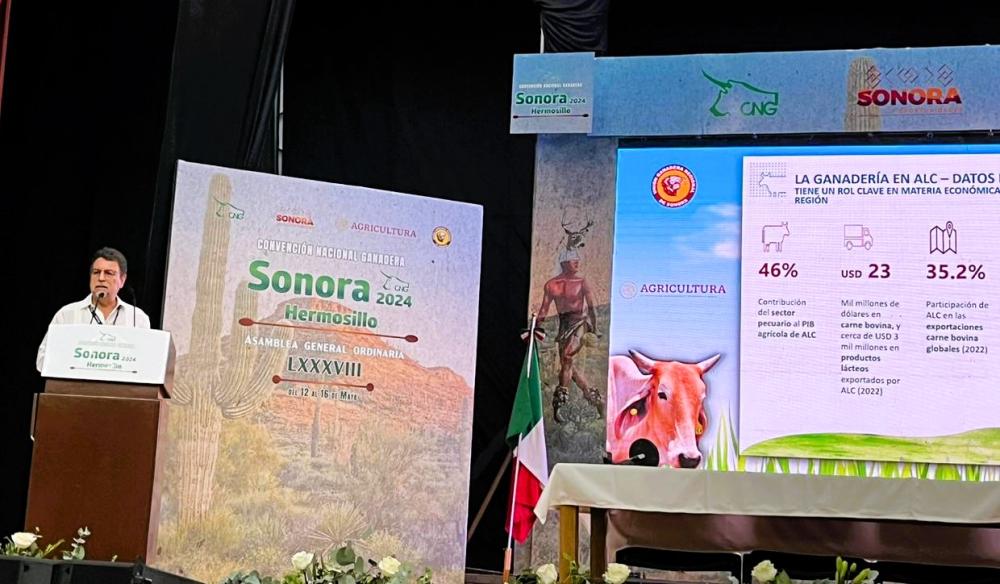Sustainable livestock farming drives economic development in the Americas and combats climate change: IICA

Mexico City, May 20, 2024 (IICA). Mexico and the Americas as a whole play a strategic role in supplying high-value animal protein, reducing rural poverty, and combating climate change, said the Representative of the Inter-American Institute for Cooperation in Agriculture (IICA) in Mexico, Diego Montenegro.
At the 88th National Convention of Livestock Organizations (CNOG), Montenegro gave a presentation entitled “The sustainability of livestock farming in the Americas: part of the solution to climate change,” in which he highlighted the fact that livestock farming in Latin America and the Caribbean has a crucial contribution to make in mitigating climate change, with livestock farmers being a key link in the transformation process.
Accounting for 46% of the agricultural GDP of Latin America and the Caribbean (LAC), livestock farming is a vital component of the economy. In 2022, the region exported meat and dairy products worth USD 23 billion, demonstrating its importance in global markets.
Mexico, in particular, has achieved notable progress and is now the world’s sixth largest beef producer. In the last ten years, the country has seen meat production grow by 20.4%, and bovine milk production by 19.5%.
Montenegro highlighted the potential of livestock farming as part of sustainable development strategies, but acknowledged that it faces significant challenges, especially since it has to supply high-quality protein while at the same time helping to combat climate change.
Livestock production systems vary widely in terms of their carbon footprint, and strategies to reduce their emissions are crucial for the sustainable future of livestock farming. This could be achieved, Montenegro said, by promoting sustainable livestock farming through the adoption of good practices such as animal nutrition, soil health management, integrated crop management, agroecological management, water management, the development of intensive regenerative grazing, genetic and reproductive improvements, reforestation, the use of smart electric transportation, machinery and equipment, solar energy, biodigesters, research and development and innovation, and the promotion of value added.
This is why IICA is promoting the SAbERES project, which focuses on territorial planning and financial innovation to increase Mexico’s resilience to climate change. SAbERES works with local livestock associations in Jalisco, Michoacán, Tabasco and Chiapas to advance the establishment of silvopastoral systems; improve water management and carbon sequestration in livestock soils; increase tree cover in grasslands; and optimize feed supplementation and herd management, adjusting carrying capacity to maximize efficiency and minimize environmental impact.
IICA has promoted several initiatives to help reduce emissions and increase resilience to climate change through training, technical assistance and the territorial integration of value chains. It also supports improvements in animal nutrition and genetics to reduce their environmental impact.
Montenegro stressed the importance of adapting the methods used to measure greenhouse gas emissions to the various intensive and extensive production systems and ecosystems.
“The use of advanced technologies makes it possible to integrate food security with global climate security, paving the way for a sustainable future for livestock farming in the region,” he concluded.
More information:
Leticia Deschamps, IICA Project Coordinator in Mexico.
leticia.deschamps@iica.int